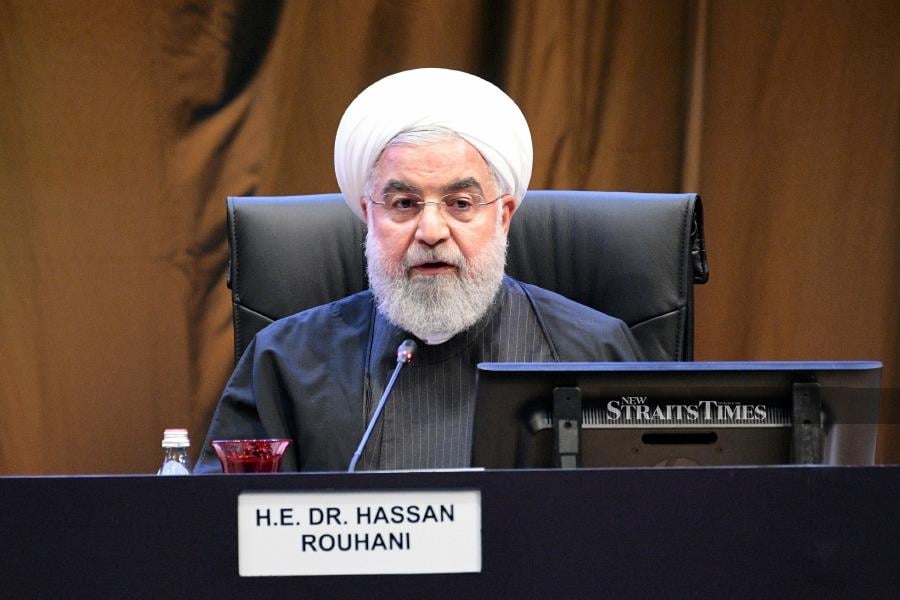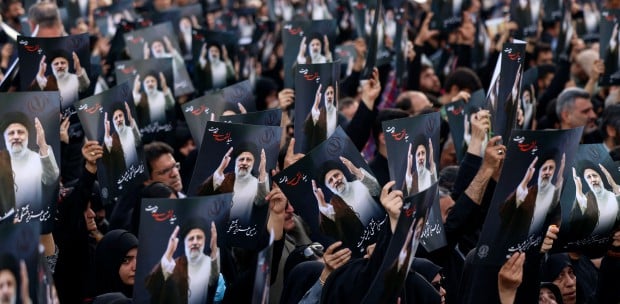KUALA LUMPUR: Underdevelopment and security remain the biggest issues among Muslim nations, said Iranian President Dr Hassan Rouhani.
He said these issues were far ahead than the social issues that involved the ummah's identity on the world stage.
Muslims were now living in a world immersed in technology and consumerism that were not from the Muslim world, and there was a danger of the ummah getting swept up by these things, he remarked.
He added that the security challenges in the Muslim world were more apparent as conflicts could be seen today from east Africa right up to the Muslim communities in East Asia.
Citing an example, he said Zionist regime's continued pressure against Palestinians and the United States' sanctions on certain Muslim countries, have brought about challenges for the ummah.
"The threats of terrorism and mental and behaviourial radicalism in some Muslim societies have paved the way for foreign intervention in these societies.
"The war in Syria and Yemen and the riots and turbulence in Iraq, Lebanon, Libya and Afghanistan are the outcome of domestic radicalism and foreign intervention.
"It is regrettable that the Muslim world from north Africa to east Asia is grappling with serious security threats, and problems ranging from the continued threats from the Zionist regime which is killing our Palestinian brothers and sisters on a daily basis, to the military, political and economic threats by the United States against some Muslim countries," he said in his opening speech at the 5th Kuala Lumpur Summit 2019, here, today.
Rouhani said that underdevelopment in certain Muslim countries was a malady that weakened governments, and it caused poverty, unemployment, corruption, increasing violence and extremism.
However, he believed that Muslim nations needed to band together to forge cooperation in trade, investment and the development of technology to boost their status in the world.
"We should be designing measures to save us from the domination of the US dollar and American financial regime.
"The fact is Muslim states complement each other in terms of economy.
"Special banking facilities among Muslims, and the use of mutual monetary tools among Muslim nations and trade agreements and investments among these nations would be advantageous.
"If we pool together our strength among Muslim nations, we can overcome these problems."
Rouhani said Iran overcame all challenges and remained steadfast despite the sanctions imposed by the US on the Islamic republic.
"Iran has been under oppressive sanctions by the US. Recently, they were seeking the collapse or surrender of the Islamic establishment through the imposition of the heaviest sanctions or so-called crippling restrictions.
"Since May 8, 2018 when the US withdrew illegally from the nuclear deal, more than 93 sanction measures have been imposed on Iran.
"Today the Iranian economy has recovered properly and economic indexes are improving. Under such circumstances, economic reforms are underway amidst these sanctions," he said.






